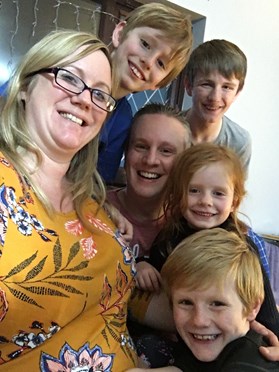Seeing the positive side
Published Date: 19 Mar 2020
None of us like the word failure, none of us like to go into a situation where we feel we might not be able to complete or achieve the end goal.
Our daughter recently had her annual speech and language assessment. She wasn’t nervous, she just sees this as another appointment, but this one is different for a couple of reasons.
1 - the appointment is in the clinic rather than at school
2 - a parent goes too
3 – sometimes she’s being assessed without even realising
So, how did it go?
Well, dad went this time - he could get an hour off work and I couldn’t so that was decided for us.
We weren’t nervous, we’re very happy with our daughter’s progress, her communication skills, her understanding and her everyday love for life! She wasn’t nervous, she was excited to see toys she missed from last year and see if there were any new toys.
The assessments went well. She talked and answered questions, sometimes she needed prompting while other times she held her own.
The verdict is that she is still behind her hearing peers in speech and language.
In a way some people see this as a failure, some people would be upset, devastated even. The amount of work they’ve done together as a family, the hours they’ve spent narrating their everyday activities or possibly paying for private therapy.
But we think she’s brilliant!
We don’t see this as a failure, we see this as huge progress. We can see the development of her language skills, her conversation, her vocabulary and her understanding. We see how sociable she is, the great amount of confidence she has and her intelligence.
Yes, there are words she should know that she doesn’t - but she could often tell you what the word means or what the object is used for. There are words she knows she doesn’t know and will say: “I don’t know what that is, what do you call that Mummy?”
My hearing children didn’t have this level of confidence - they would have made up a word or made a guess.
Some kids (hearing or deaf) have favourite subjects - cars, dinosaurs, dolls - they know all the language associated with their subject, but kids outside this wouldn’t know the words and that’s fine!
Remember, you can choose to get labelled with the word failure, but really, you’re only failing if you fail to use it for your own benefit.
Make sure you acknowledge those gaps, delays and mistakes and use them to inform what you do in the future. Increase your chats about a certain subject, add little prompts to help recall unfamiliar words or make a game to learn new vocab.
